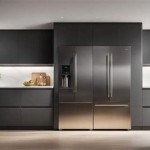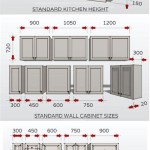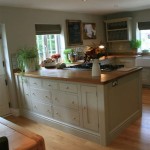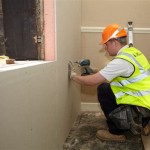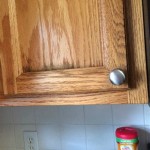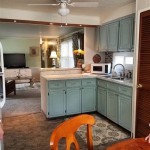Non-Standard Depth Kitchen Cabinets: A Comprehensive Guide
When designing a kitchen, it's crucial to consider the dimensions of the cabinets to ensure optimal functionality and desired aesthetic appeal. While standard depth cabinets measure around 24 inches, non-standard depth cabinets offer versatility to meet specific design requirements.
Benefits of Non-Standard Depth Cabinets
Enhanced Storage: Non-standard depth cabinets, ranging from shallow to extra-deep, provide additional storage capacity. Shallow cabinets save space in tight areas, while extra-deep options accommodate bulky items, appliances, and cookware.
Design Flexibility: Cabinets of varying depths allow for creative layouts and customization. Combining different depths creates visual interest, accommodates odd-shaped spaces, and optimizes space utilization.
Improved Accessibility: Shallow cabinets enable easy access to frequently used items. For example, pull-out pantries with shallower depths make groceries readily accessible and organized.
Space Optimization: Extra-deep cabinets utilize wall space more efficiently, reducing the need for additional cabinetry or drawers, and maintaining a clean and clutter-free appearance.
Types of Non-Standard Depth Cabinets
Shallow Cabinets: Typically measuring between 12 and 16 inches deep, shallow cabinets are ideal for smaller kitchens, pantry storage, and areas with limited space.
Standard Depth Cabinets: Measuring around 24 inches in depth, standard depth cabinets provide ample storage for most kitchens and are commonly used in wall units and base units.
Extra-Deep Cabinets: Exceeding 24 inches in depth, extra-deep cabinets offer generous storage for bulk items, appliances, and cookware, and are often employed in pantry areas, utility spaces, or under-sink storage.
Considerations for Choosing Non-Standard Depth Cabinets
Kitchen Layout: Determine the available space and design constraints to select cabinets that complement the overall kitchen layout.
Storage Needs: Assess the storage requirements and consider the types of items to be stored to determine the appropriate cabinet depth.
Functionality: Ensure that the cabinets meet functional needs, such as easy accessibility, optimal storage, and efficient work flow.
Aesthetic Preferences: The depth of the cabinets can influence the overall aesthetic of the kitchen. Choose depths that complement the design style and create a visually pleasing space.
Door Styles: Select door styles that are compatible with the cabinet depth. For example, shallow cabinets may require narrower doors, while extra-deep cabinets can accommodate wider doors.
Conclusion
Non-standard depth kitchen cabinets offer numerous advantages, from enhanced storage capacity to design flexibility. By carefully considering the kitchen layout, storage needs, functionality, and aesthetic preferences, homeowners can select cabinets that optimize space, improve accessibility, and create a customized and inviting kitchen experience.

Reduced Depth Slimline Base Units Kitchen Diy Kitchens

Proper Depth For Frameless Cabinets

Get More Kitchen Storage With Counter Depth Upper Cabinets

Get More Kitchen Storage With Counter Depth Upper Cabinets

Standard Kitchen Cabinet Dimensions For Your Homee Design Cafe

How To Cut Down The Depth Of A Base Cabinet In Stock Like Custom

Standard Kitchen Cabinet Dimensions For Your Homee Design Cafe

Kitchen Cabinet Sizes What Are Standard Dimensions Of Cabinets

How Deep Are Kitchen Wall Cabinets A Quick Guide To Cabinet Dimensions Arinsolangeathome

Kitchen Cabinet Sizes What Are Standard Dimensions Of Cabinets
Related Posts


